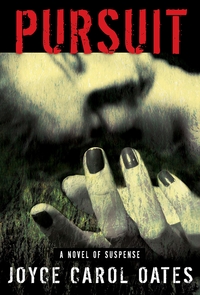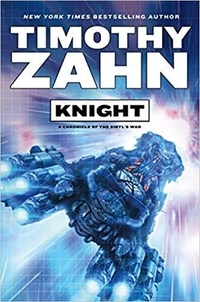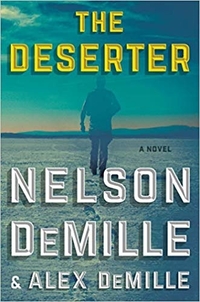
Published by Crown on August 20, 2019
Many books, both fiction and nonfiction, have condemned the corporatization of America, the loss of worker’s rights, or the concentration of wealth and power into the hands of a shrinking few. Presidential candidates who have a chance to get elected are even talking about those issues (only to be condemned as radical by those who depend on the shrinking few for financial support). The Warehouse is an entertaining, near-future look at the consequences of allowing the top 1% to make policies that govern the rest of us.
The Warehouse is based on a company called Cloud, because Rob Hart would have been sued if he called it Amazon. It was founded by Gibson Wells, who might be even wealthier than Jeff Bezos, and is certainly older and (I assume) more devious. In an era of budget–tightening in industry and government, the unemployed are flocking to Cloud for monotonous, tiring, underpaid jobs (the kind of jobs that Amazon warehouse workers perform). Some of them worked for companies that were put out of business by Cloud’s predatory practices. In fact, Cloud is pretty much the only retail store that matters, the box stores having been run out of town by the convenience of online ordering and drone shipping.
The Warehouse is set a few years in the future, when global warming is having its predicted impact on the planet. Cloud is a throwback to corporate towns; employees live in dorm rooms provided by Cloud so they can focus on working rather than commuting. In exchange for discounted housing and healthcare, they earn less than minimum wage thanks to a business–friendly Congress. Deductions from meager wages are made for a variety of reasons, including the failure to make quotas. Workers wear watches that track their location and production. In fact, they can’t leave their dorm rooms without wearing the watch, even on their own time.
Gibson is an old-fashioned robber baron who relies on bromides to mask his self-interest. “Regulations are bad” because they keep him from doing all the awful things he wants to do. “Hard work is good” if the hard workers are filling his pockets with profits. “Privatization is efficient” because his control of newly privatized services efficiently increases his wealth. He views himself as “exceptional” so customary standards of human behavior, not to mention laws, cannot be expected to stand in the way of his achievements.
Gibson is dying of cancer and is blogging his final year of life, during which he intends to visit all 100 MotherClouds (fulfillment centers) so he can say hello to all his employees before he dies. He also blogs his self-aggrandizing ideas. He pats himself on the back for creating jobs when the jobs are crappy and employees are treated like slaves. He is virulently opposed to unions and thinks his “rating” system to overwork his underpaid employees is brilliant. Ebenezer Scrooge might agree.
The two key characters, Zinnia and Paxton, both make the hiring cut. They both have ulterior motives for taking the job. Zinnia is a corporate spy. Cloud claims to be energy independent but its wind farms and solar panels seem incapable of generating the necessary power. Zinnia has been hired to find the source of the power that Cloud doesn’t want to disclose for fear of losing its green tax breaks. What she actually finds, on several different fronts, casts Cloud in an even less favorable light.
Paxton tried to patent his own idea but was screwed over by Cloud. After working as a prison guard, he views a job at Cloud as temporary but essential to his survival. He hated being a prison guard so he is, of course, assigned to security. Naturally, his life intersects with Zinnia’s. He is smitten, while she is happy to develop an unwitting source for information about Cloud security. A reader will see where that plotline is going and will be either pleased or disappointed to learn that it does not deviate from expectations. The predictability didn’t bother me because I enjoyed the novel less for its plot than for its detailed imagining of the future of retail that Amazon might soon inspire.
The Warehouse argues that free people don’t have to accept the lives that are assigned to them by corporate masters. “At least I have a job” doesn’t justify being treated like garbage. Free people can fight for something better. Whether Zinnia’s way of fighting is the best way might be a question that readers debate, but she at least opens minds to the possibility of change. The novel’s underlying lesson is that compassion and fairness are more important than security and comfort. As important as security and comfort might be, they should not be achieved by sacrificing the security and comfort of others.
The Warehouse is also an indictment of: big businesses that use their economic might to drive small businesses out of the marketplace; big businesses that use their economic might to patent and control ideas developed by small businesses; and big businesses that use their economic might to convince people that big businesses act in the best interests of their employees and customers when they are only acting to further the interests of controlling shareholders. The story targets Amazon but it could just as easily target Purdue Pharma or Wal Mart or Johnson & Johnson or Wells Fargo or Ford Motors.
Readers who disagree with those propositions won’t like the book. Most other readers should enjoy it. Despite its predictable moments, the plot is lively and Paxton is a sympathetic protagonist who confronts a personal crisis in a way that readers can admire. It is the future that Hart builds, however, that makes The Warehouse memorable.
RECOMMENDED
 Wednesday, October 30, 2019 at 7:39AM
Wednesday, October 30, 2019 at 7:39AM 



